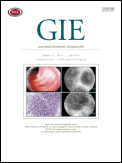Celiac.com 01/03/2009 - The development of reliable blood tests for celiac disease have shown the condition to be much more common than previously thought. In fact, the rate of diagnosis has increased sharply in recent years.
It’s been well documented that, for most people celiac disease, a gluten-free diet leads to healing of the small intestine, and brings about overall improvements in their quality of life. Current medical wisdom dictates that once a person is diagnosed with celiac disease and experiences an improvement in symptoms by adopting a gluten-free diet, there is little need to undergo follow-up screening unless they experience a clear recurrence of symptoms.
Celiac.com Sponsor (A12):
Some doctors are beginning to challenge that practice. However, it is also becoming clear that people with celiac disease face a higher risk of risk of developing a number of long-term complications and other autoimmune disorders.
The list of such complications and conditions associated with celiac disease is growing rapidly, in particular, autoimmune disease, malignancy, and bone disease. Can these be prevented and outcomes improved? Risk factors that can predict or shape long-term outcomes include genetic make-up, environmental factors, especially gluten consumption and exposure, persistent small intestinal inflammationâ„ damage and nutritional deficiencies.
The use of genotyping has yet to establish a clinical role in the long-term management of duodenal biopsy. Symptoms, blood tests, or other non-invasive methods are poor predictors of healing status, or the likelihood of associated complications. This means that long-term management of celiac care might benefit from strategies laying somewhere between regular biopsies for life and simple faith that one is successfully following a gluten-free diet.
A team of doctors based in Australia recently set out to conduct a systematic review of the complications and associations of celiac disease, to identify potential risk factors, to define ways of assessing risk factors and to provide a strategy for management. The team was made up of Dr. M. L. Haines, Dr. R. P. Anderson & Dr. P. R. Gibson, and they conducted a review of medical literature going back to 1975.
The doctors found that all people with celiac disease should have follow-up exams. They felt a reasonable minimum for all patients would be an initial consultation 1–2 weeks after biopsy diagnosis, review consultation 3–6 months later and subsequent annual reviews assessed on an individual basis.
As to whether the follow-up should be done by a specialist, such as a gastroenterologist, or by a general practitioner, a nurse practitioner, or a dietitian, the research team noted that most celiac patients prefer to see a dietitian for follow-up, with a doctor available as needed.
The team felt that special attention should be paid to patient adherence to a gluten free diet.
The doctors noted the ease of gluten ingestion and pointed out that 6 in 10 patients experience persistent histological changes within an average of two years of undetected gluten exposure. They also noted there are a large number of associated conditions that can be averted by keeping celiac disease under control. They also note that symptoms and blood tests are poor indicators of intestinal damage levels on a cellular level.
Such damage can spread from the cellular level to the systemic level over time, leaving people with untreated celiac disease face an elevated risk of developing infection. The researchers noted that people untreated celiac disease have significantly reduced levels of leucocytes, total lymphocytes, and CD3+, CD4+ and CD8+ lymphocytes compared to those with treated celiac disease and to the general population.
With so many associated conditions tied to celiac-related intestinal damage, controlling or preventing that damage becomes crucial. They also note that proper monitoring of celiac disease can help to prevent celiac-associated neuro-psychiatric conditions such as anxiety, headaches, behavioral symptoms and depression, which, it is thought may be triggered by impaired availability of tryptophan and disturbances in central serotonergic function.
The proper control of celiac disease can help to prevent the development of, or improve, numerous celiac-associated conditions. That proper control means a reliable means to assess patients for follow-up, and the study presents several aspects of a new protocol for treating celiac disease over the course of the patient’s lifetime.
Aliment Pharmacol Ther 28, 1042–1066








Recommended Comments